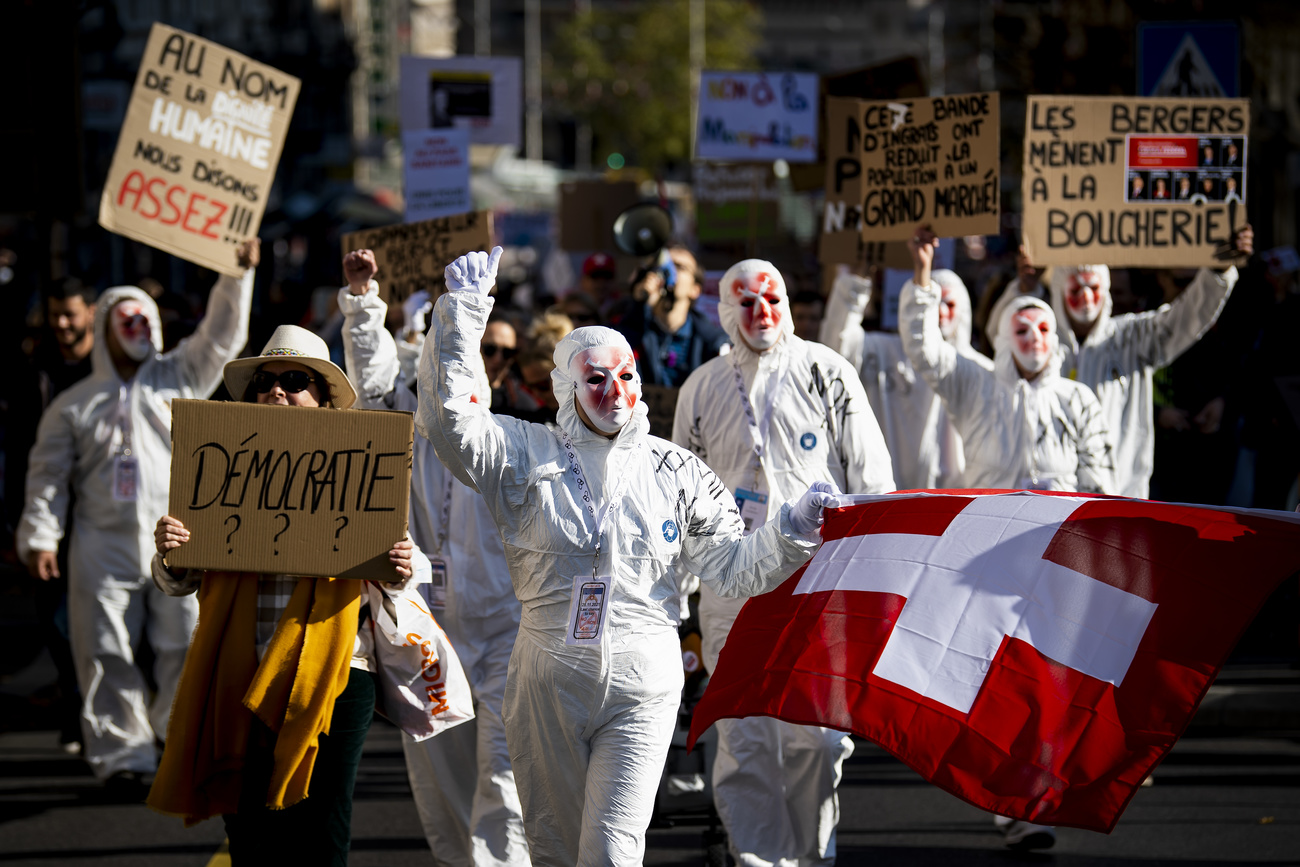
Fresh protests over Covid policy mobilise thousands in Switzerland

Several Swiss cities witnessed demonstrations against the government's Covid-19 policy on Saturday, notably the recent imposition of a Covid certificate requirement to enter indoor areas like restaurants.
Between 800 and 1,000 people took to the streets in a colourful, whistleblowing procession in French-speaking Lausanne. In German-speaking Switzerland the largest demonstration took place in Rapperswil-Jona in canton St Gallen, mobilising about 3,000 people.
In Lausanne, some demonstrators demanded the resignation of Health Minister Alain Berset likening him to a “dictator”.
“Berset, we don’t want your passports” and “Liberté (Freedom)” chanted the participants, who were walking without protective masks, according to the Swiss News Agency Keystone-SDA.
Protest signs read: “No to mass surveillance” and “For security we lose freedom”.
The Covid certificate, in the view of demonstrators in Lausanne, is a Nazi-like passport (or a tool for discrimination). Demonstrators distributed leaflets urging people to vote against the government’s approach in a referendum on November 28.
+ Swiss Covid law set for second public vote
Rallies drew more than 1,000 demonstrators in the the northern town of Baden and about 400 in Lugano, the third demonstration held in the southernmost, Italian-speaking canton of Ticino.
Such events have become a weekly phenomenon and at times turn unruly and violent. No incidents were reported by police on Saturday.

Counteraction
A rally in support of the government’s policies gathered about 300 people in the capital Bern. Demonstrators there generally donned masks and some carried banners urging “Solidarity in the face of the crisis – solidarity against the Right”.
Many nations around the world have introduced vaccine mandates and digital health certificates (proving immunity or immunisation) in a bid to bring the coronavirus pandemic under control.
Globally, 5.5 billion vaccine dosesExternal link have been administered, according to the World Health Organization, but 80% of those are in high- and upper-middle-income countries.
In Switzerland, around 61% of the population are fully vaccinated against Covid. Swiss residents are required to show a Covid certificate to access indoor spaces like restaurants, bars and museums.
The Covid-19 pandemic – now in its fourth wave – has been punctuated by fierce debates across the world with governments struggling to find the balance between civil liberties and public health.

In compliance with the JTI standards
More: SWI swissinfo.ch certified by the Journalism Trust Initiative






























You can find an overview of ongoing debates with our journalists here . Please join us!
If you want to start a conversation about a topic raised in this article or want to report factual errors, email us at english@swissinfo.ch.